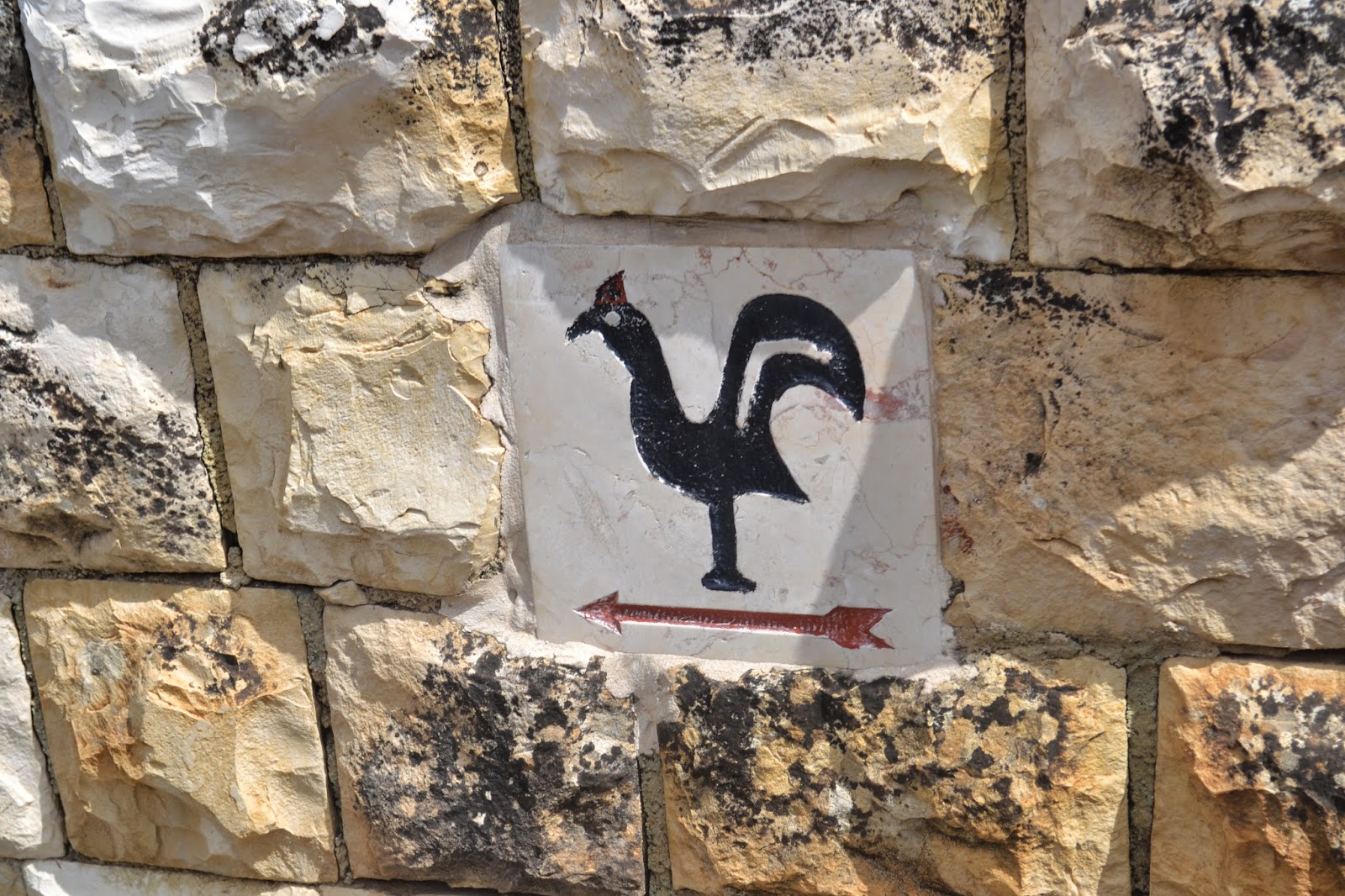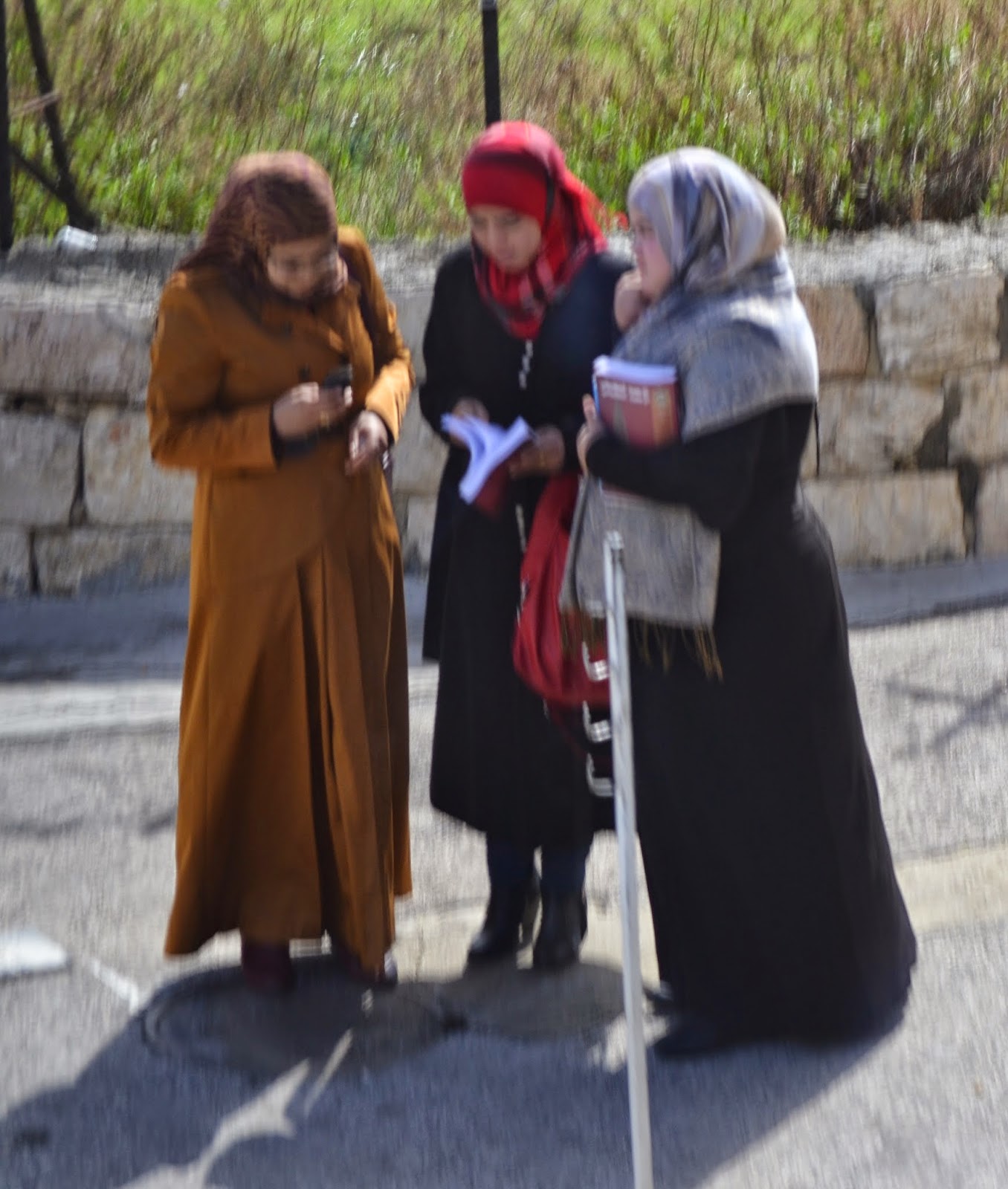Sunday, August 24, 2014
Was Lydia, the seller of purple, Paul's "man" in Macedonia?
I love to come home from church on Sunday and ponder something I heard in the sermon. Back in the "olden days" that was basically all we had to do on a Sunday afternoon. Stores were closed, there were hardly any shows on TV during the weekend, we didn't really go anywhere, and it was basically a parent-imposed day of rest. Strange notion, huh?
When we would visit our grandparents in the South (my Dad was in the Air Force, so we lived all around) there would always be a big Sunday dinner after church. There would be so many dishes on the table that some never even made it out of the kitchen. As we shared this meal, the sermon would always be the first topic. I remember very clearly being kicked under the table when I waxed long on the preacher's message that divorced people would "burn in hell" in front of my divorcee aunt. However controversial, the day's message was always dissected.
We don't do that much today...facebook, instagram, sports, and shopping have all intruded into the former sanctity of Sunday afternoon. I still like to take the time to digest a good sermon. My apologies to Rev. Todd Watson of Main Street United Methodist Church if I missed the point, but I've enjoyed looking at Acts 16:9-15 from Todd's point of view.
Paul was beckoned by a man in a dream to come to Macedonia. Paul and his entourage complied, and were met on the riverbank, outside the gates of the city, by Lydia, a seller of purple. Lydia was an independent Gentile woman in a world run by men. What were the chances of Paul and Lydia meeting? The Holy Spirit had lead the Jerusalem counsel to continue to allow Paul's outreach to the Gentiles. The Holy Spirit had lead Lydia to a God who had been looking for her. Their paths crossed on a trajectory that originated outside the boundaries of our human experience. The notions of work and worship find fusion in Lydia. Lydia and her household were baptized, and she became the first European convert to Christianity.
There is no record that Paul ever encounters the dream-man who called him to Macedonia. Could Lydia have been his stand-in? Would Paul have dropped everything he was doing to respond to a mere woman? When Paul and Lydia met by the river, longing and grace met, and everything changed in a moment that was both human and divine. All the participants worked together to respond to God's gentle nudge.
What nudges are we answering or ignoring? If we continue with our normal day-to-day obsession with self, can we hear the needs of others? Are we available enough to God to feel a nudge? These instantances may not be as dramatic as Paul's dream, but they are there, nonetheless.
This text is often preached to launch missions and evangelization. Our nudges need not take us to Macedonia, or the other side of the world. God's nudges can be local, coming at any time of the day or night. Our mission can be to the person sitting next to us at home, on our job, or out in our community. God opened Lydia's heart because she allowed it. May each of us be open enough to be nudged by God, to the point that we can fully rest in God's grace.
Saturday, August 16, 2014
"Peter, do you love me?"
We can only imagine how the disciples felt after Jesus' crucifixion. Their earthly king had not appeared, and they left Jerusalem secretly and made their way back to Galilee. They tried to find solace in their old occupations, but their nets remained empty and they were disconsolate. Peter especially carried the guilt of betraying his master in his hour of need. None of them had lived up to expectations.
We can only imagine their surprise at being greeted at the shoreline one morning by a stranger who directed them to cast their empty net to the other side - where they brought up so many fish that their net tore. Peter had to be shocked to find Jesus sitting by a charcoal fire, grilling fish and bread for their breakfast. Peter must have been reminded of that charcoal fire in the courtyard of the high priest on that night not so long ago. There he warmed himself before uttering those imfamous words..."I am not," after being asked if he was a disciple of Jesus.
Tradition says that this breakfast meal was shared on this rock which makes up the altar of the Mensa Christi. Jesus did not greet Peter with words of recrimination or judgment, but addressed him with love, asking Peter three times to confess his love for Jesus; each proclamation erasing an earlier denial.
Jesus know that Peter had betrayed him and was a sinner. Why does he choose Peter to be the leader of his church on earth? Why not choose one of the other disciples - someone who hasn't let him down? Jesus knows Peter's heart. Jesus also wants to model for his disciples, and for the world, the way of forgiveness. Reminisicent of the Parable of the Prodigal Son, Jesus goes beyond what is expected to put things right with Peter. More than just forgiveness, Jesus restores Peter to a right relationship: Christian reconciliation motivated by love. What a lesson for us!
Jesus knows Peter's heart. Jesus takes Peter's love and directs it out into the world - calling him to be a shepherd and a fisher of men. At this moment on the beach Peter could not have known what was in store for him. He said "yes" to Jesus not out of his belief in himself or his belief in his abilities, but because of his belief in Jesus. We know that Peter was up to the task, and that he was able to give this same gift of forgiveness many times over the remainder of his life.
As Christians we must be able to both forgive and be forgiven. Forgiveness gives life both to the giver and the recipient, and frees us from spiritual death. Only when we are free can we respond to Jesus' call to "Follow me!"
Monday, August 4, 2014
Pray for Peace
In March 2014, I was privileged to travel to the Holy Land. I would not be able to go today. With travel advisories and flights being cancelled, it is no longer safe to make this pilgrimage. Sacred spaces are being violated by guns, rockets and bombs.That saddens me. This trip was important to me on so many different levels. I was able to understand Jesus in relation to his surroundings. So many of the Bible stories came into clearer view. I want to go back - but not now. This picture was taken in the Garden of Gethsemane. Here Jesus surrendered himself to death on the cross. Let this "thin place" be a conduit for our prayers for peace and understanding.
Before our trip we read Blood Brothers, by Elias Chacour. He writes from the viewpoint of a Palestinian Christian - a viewpoint I had never considered. I encourage you to read this book, or one of the many others like it. There is another point of view.
While we were in Israel we were exposed to the Palestinian people - do you know any? They are people just like us. The majority of them are not terrorists or members of HAMAS. They are confined to a small area in Gaza, the West Bank, and the Golan Heights. They possess no citizenship and no rights. This is not justification for violence, but not an unexpected consequence. I'd never considered that before.
Armed soldiers and/or military drones were at all the places we visited.
The Church of the Nativity was guarded by a Palestinian soldier. The sacred and secular collide at every turn.
This is a complicated situation and there are no easy answers. Please pray for God's guidance for those in power and for those without power. Pray that calm can return to the land where our Savior walked. Pray for peace!
Subscribe to:
Comments (Atom)
















